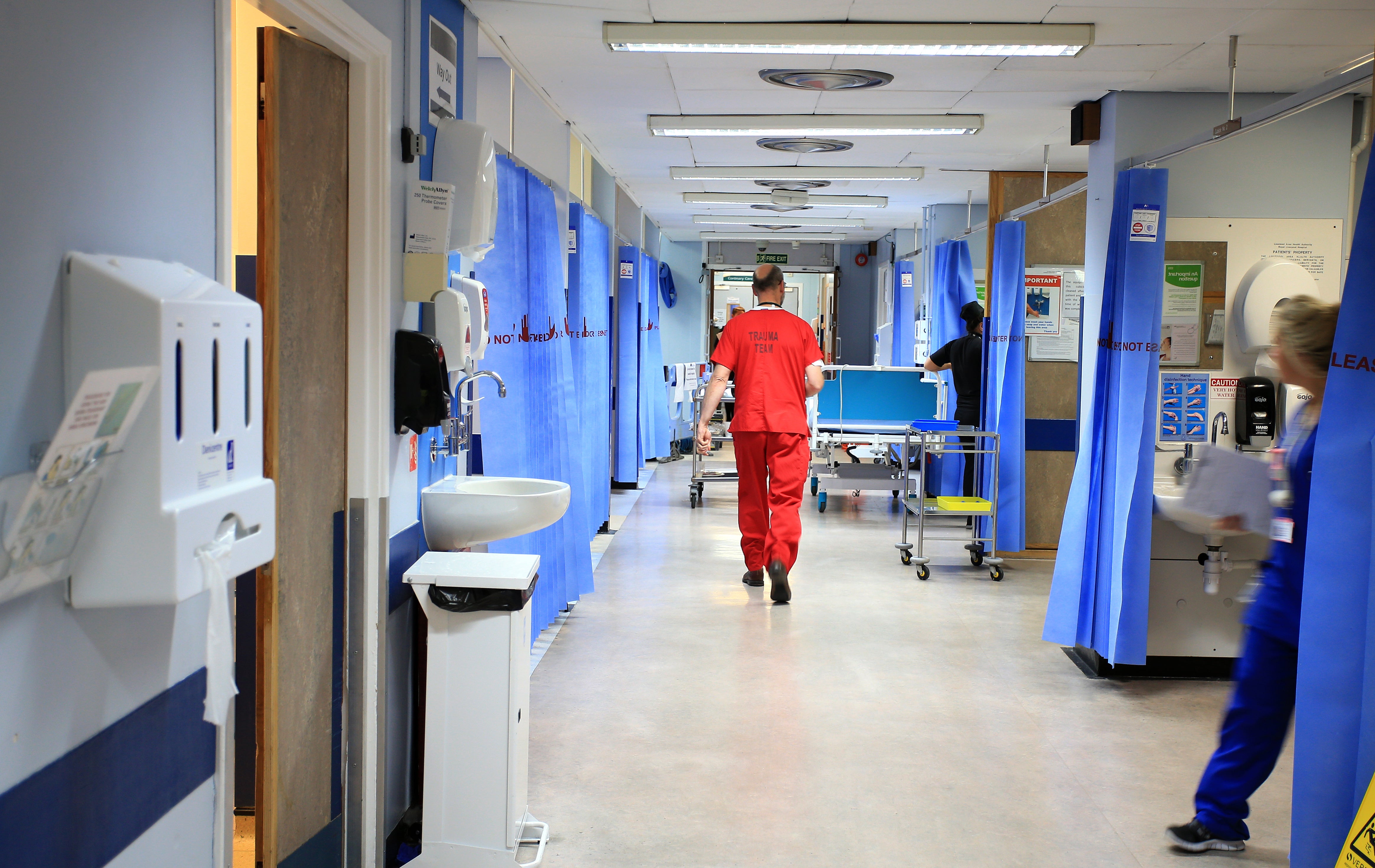Sanction against 150 doctors for sexual misconduct are ‘tip of the iceberg’, medics warn
Exclusive: Doctors reporting allegations to regulator are being ‘failed’, campaigning doctor has warned

Your support helps us to tell the story
From reproductive rights to climate change to Big Tech, The Independent is on the ground when the story is developing. Whether it's investigating the financials of Elon Musk's pro-Trump PAC or producing our latest documentary, 'The A Word', which shines a light on the American women fighting for reproductive rights, we know how important it is to parse out the facts from the messaging.
At such a critical moment in US history, we need reporters on the ground. Your donation allows us to keep sending journalists to speak to both sides of the story.
The Independent is trusted by Americans across the entire political spectrum. And unlike many other quality news outlets, we choose not to lock Americans out of our reporting and analysis with paywalls. We believe quality journalism should be available to everyone, paid for by those who can afford it.
Your support makes all the difference.Nearly 150 doctors have been disciplined for sexual misconduct in the last five years, as surgeons call for action on the “systemic” and “cultural” problem of sexual assault within healthcare, The Independent can reveal.
Doctors campaigning for the UK’s healthcare services to address widespread problems with sexual harassment and assault in medicine have warned that people do not feel safe to come forward with allegations amid deep-seated “hierarchies” within healthcare.
The Royal College of Surgeons’ Women in Surgery chair has said the issues are “widespread” across the health services and improvements to protecting whistleblowers needed to be made nationally.
Data, obtained by The Independent, showed that between 2016 and 2020 an average of 28 doctors have been sanctioned each year by the GMC, which regulates more than 350,000 doctors in the UK, after allegations of sexual misconduct were proven against them.
The majority of these doctors were erased from the register, meaning they lost their licence to practice. Of the proven allegations, 41 were made by another healthcare professional, 42 by a patient – the remaining were unknown.
In January, The Independent revealed hundreds of nurses and other healthcare professionals have been sanctioned in recent years for sexual misconduct allegations, including more than 100 incidents of sexual abuse of child patients.
The news comes after a doctor from a West Midlands hospital was arrested on suspicion of child sexual assault, according to reports from The Sunday Times this week.
Last year, surgeons Becky Fisher and Simon Fleming wrote an academic paper exposing the problem of sexual assault, harassment and rape in surgery and surgical training.
The surgeons’ article has since kick started what was reported in The Times as surgery’s “#metoo” moment.
In interviews with The Independent, both have warned the “institutional” problem goes beyond surgery and across all of the healthcare services.
Mr Fleming said the figures from the GMC were the “the very tip of the iceberg” in terms of actual levels of sexual assault within healthcare.
Talking about the role of the GMC, Mr Fleming said he’d been told “by more than one person” that when they’ve reached out to the GMC over sexual assault or misconduct they were “failed” by the regulator and were “either not helped, abandoned or told to deal with it locally”.
He said although the regulator has made positive statements, it needed to “accept that healthcare has a culture problem, and the GMC do have a responsibility to challenge these behaviours, to seek them out, and to acknowledge the cultural and systemic issues that stop these behaviours from being both reported and acted on”.
“I don’t think it is acceptable to just not be a rapist,” Fleming said. “You know, I don’t think your baseline should be ‘I don’t sexually harass my colleagues or my patients’... both as a profession and as the regulators of our profession. You should be actively ‘anti’ these things.”
Ms Fisher warned: “Nobody who’s currently in training [and] has been affected by this has really been able to speak out.”
She said the difficulties junior doctors had with reporting incidents were often linked to the “hierarchy” within NHS organisations, adding: “the problem is, often the person who is involved in these allegations is within that hierarchy, or is closely associated, so the only way forward is to escalate even higher from the outset, which sometimes seems, you know, you can essentially get yourself blacklisted from training.”
The surgeon said NHS trusts often don’t know how to respond to allegations as firing a highly respected consultant, for example, can be “controversial” and have a “huge” impact on their reputation.
In an interview with The Independent, Tamzin Cuming, chair for the Royal College of Surgeons’ Women in Surgery forum, said recent testimonials and evidence from the British Medical Association last year showed experiences of misogynistic comments and micro-aggressions were “widespread” within medicine and people within the profession do not feel happy speaking up about sexual assault.
Ms Cuming said in medicine, “people who are often quite junior have reported and been questioned, been told not to take it further and ultimately been told it’s just their word against the perpetrator’s word.”
She said both issues were a wider issue within society but added that in surgery “we need to stamp out the misogynistic atmosphere, the kind of casual way that comments are not repelled, in the way that they would be in normal society, within operating theatres”.
The Women in Surgery chair said work needed to be done on making it safer to report, ensuring people are given whistleblowers’ protection and for perpetrators to face consequences.
Ms Cuming said, however, that progress would take time and as with wider society would not suddenly change.
In a statement, a spokesperson for the GMC said: “We understand the process of reporting is extremely stressful and upsetting for victims. As each case is different and sexual misconduct covers a wide range of behaviours, it may be appropriate for an employer or the police to investigate in the first instance.
“We take allegations of sexual misconduct by doctors against colleagues or their patients extremely seriously.”
It added that over the last few years it has carried out a review of how it handles these cases, which includes improving the information and support for those involved.
Several helplines have been set up for advice and support for anyone who needs advice on raising concerns.
Helplines, advice and support
The Royal College of Surgeons of England Confidential Support and Advice Service is 020 7869 6221. It is available to members and fellows in the UK 24/7.
A helpline run by the BMA can be found here – https://www.bma.org.uk/advice-and-support/your-wellbeing


Join our commenting forum
Join thought-provoking conversations, follow other Independent readers and see their replies
Comments